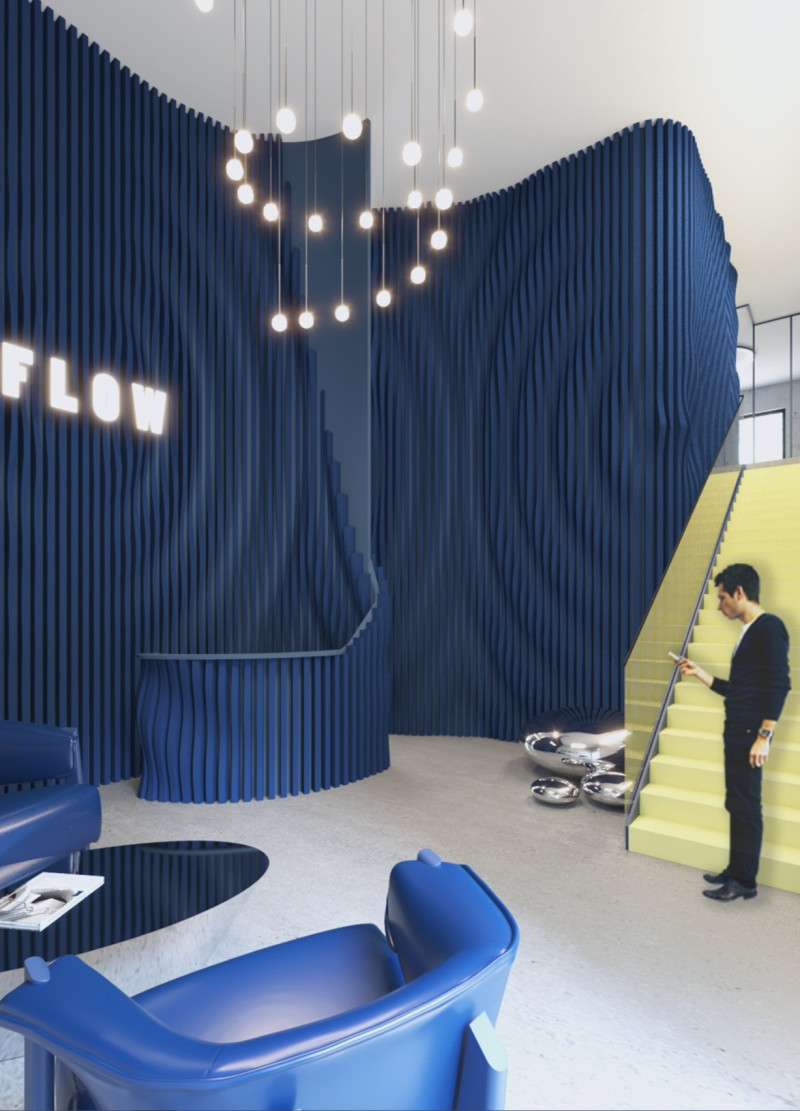5 key facts about this project
The FLOW co-working space, located in Brescia 2, Italy, showcases a contemporary design that focuses on flexibility and collaboration. This workspace is set against an urban backdrop, close to the Symbol Brescia building. The design revolves around the concept of achieving a "flow" state, which is a mental condition where individuals are deeply engaged and focused on their tasks. This philosophy informs the layout and user interactions throughout the area.
Design Adaptability
The open floor plan enables easy movement and communication among individuals. Different levels are interconnected, enhancing opportunities for teamwork and creating various settings for work. Incorporating movable walls allows these spaces to be reconfigured as needed, providing flexibility in response to changing team sizes and project demands.
Environmental Considerations
Sound insulation is an important aspect of the design. Movable walls are used to improve acoustics and minimize distractions, creating a favorable environment for focus and collaboration. Cozy corners and break areas are included to offer informal spots for relaxation and discussion. These elements help balance the work environment, accommodating the diverse needs of users.
Technological Integration
Flexible desks are inspired by American-style dining booths and feature wheels for easy rearrangement. This design choice allows users to quickly alter their workspace to suit their preferences. The management system called "Hot DESKS" enables employees to book their workstations online, further enhancing versatility.
Color and Atmosphere
A color palette of dark blue and lemon is used to promote focus and stimulation. This careful selection of colors supports the overall goal of the design—to create an environment where productivity can flourish.
Various spatial arrangements, along with practical features and a thought-out color scheme, encourage individuals to engage deeply in their work. This space effectively combines areas for collaboration with solitude, facilitating a dynamic and adaptable workplace experience.





















































